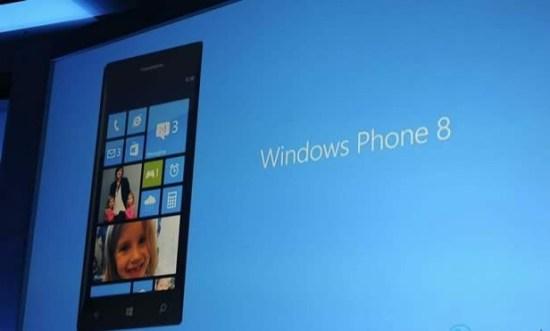
Last week, Microsoft gave us a sneak peek of what to expect when Windows Phone 8 is released this fall. They highlighted eight (get it?…Windows Phone *8*) new features including a new Start screen with more tile sizes and options, support for multi-core processors, HD displays, and SD cards, as well as a new hub called Wallet. All in all, it's a big update so, naturally, everyone wants it. The problem is that not everyone will get it. Yes, Microsoft confirmed our worst fears by adamantly stating that current Windows Phone devices will not get the Windows Phone 8 update.
To put it simply, this bites, and it brings to mind the problems that other OSes have had with software updates. Android's fragmentation problem is, well, you know the story. A new update comes out and you'll be fortunate if your phone actually receives it, but not after waiting for six months. Apple just announced the latest version of its OS, iOS 6, and held back some of its best features from devices that are merely one generation old. Android gets flack for fragmentation. iOS is getting more heat for its new-found fragmentation. Are Windows Phone fans' worst fears coming true? Is Microsoft unfairly and unnecessarily with-holding an update?
The truth is that yes, this will cause a fragmenting of Windows Phone devices. However, it's not as severe as the fragmenting we see in Android and it's certainly not as unreasonable as the fragmenting that Apple has started. Microsoft actually has good reason for not updating current Windows Phone devices. It goes like this:
First, think of some of the biggest new features in Windows Phone 8: support for multi-core processors, HD displays, and NFC. Those are obviously not features you simply send out an update for. It makes sense, right? Unless Microsoft is going to magically force a dual-core processor into your Titan II, this update wouldn't help you. Even a software update for SD card support (which Windows Phone 8 includes) wouldn't help because most manufacturers ditched the slot completely after the problems it caused. This also explains why current Windows Phone devices probably won't get the Wallet hub - without NFC, it's only half as useful (though, for the record, I still want it, even without NFC).
However, the main reason why current Windows Phone devices won't get Windows Phone 8 lies below the surface. Unlike Windows Phone 7, Windows Phone 8 actually shares the same core technologies as Windows 8 - the same kernel, drivers, file system, etc. Therefore, this isn't merely an update to Windows Phone, it's really a redesigning of what makes the OS, down to its very core. The native code is just different - it's now shared with Windows 8. In a sense, Windows Phone 8 is as much of an overhaul as Windows Phone 7 was. Remember, Microsoft explained that Windows Mobile devices wouldn't be updated to Windows Phone 7 because it was virtually a completely new operating system. The update from Windows Phone 7 to Windows Phone 8 isn't quite as dramatic, but the principle still applies. Even gaming development will see a change with DirectX (think 'Xbox-type games') now being the basis for native game development.
Now, there are some benefits to this. In fact, the reason that there is now support for multi-core processors, microSD cards, and more is actually the switch to the NT kernel shared with Windows 8. Also, now that DirectX is being used for native game development, we should expect to see "some freaking killer games this year", according to Joe Belfiore, manager of the Windows Phone Program at Microsoft. There are other improvements, too, like more security, better performance, and a more seamless experience for developers.
So now you know why your Windows Phone device won't be getting this update. The good news is that this shouldn't happen again. Switching to the shared kernel with Windows 8 is a one-time thing. Further updates should be available to everyone, at least for up to 18 months after you buy your phone, according to Microsoft. (For the record, I've heard that before). The transition is painful now, but it was necessary. Microsoft is even taking care of its loyal customers by giving everyone a Windows Phone 7.8 update that includes the new Start screen which, when you think about it, outside of the HD displays and multi-core processors (which we've already established is an impossible feature to provide for legacy devices), that's the biggest thing to look forward to anyway.